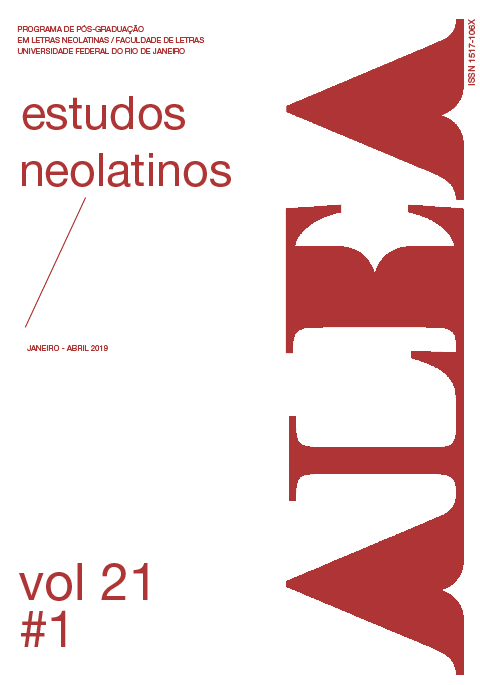Poema como partitura, leitor como performer: outro corpo em outro tempo
DOI:
https://doi.org/10.1590/1517-106X/2117591Abstract
Pode-se pensar o poema como partitura por diferentes perspectivas. Neste artigo, a questão será colocada a partir do corpo – corpo que escreve, corpo que lê, corpo que realiza a partitura. A partitura é um escrito que não é, ainda, a obra, mas a notação que permite a um leitor performar a obra, realizá-la num tempo e lugar diferidos em relação ao autor. A partitura existe para permitir que uma obra se realize à distância de seu autor. Se o poema é uma partitura, significa que ele permite ou promove uma dinâmica entre corpos, cuja natureza será preciso compreender e descrever. Descrever essa dinâmica, a estrutura desse processo, é delimitar um campo: afinal, pensar o poema como partitura, de que se trata? E de que modo o corpo se porta neste jogo? A partir de Corpus de Jean-Luc Nancy, em diálogo com Les Mains Négatives, de Marguerite Duras, procurou-se discutir o problema do corpo implicado na dinâmica da leitura-escrita do poema.
References
DURAS, M. Les Mains Négatives. In: DURAS, M. Romans, cinéma, théâtre, un parcours 1943-1993. Paris: Gallimard, “Quarto”, 1997.
ELIADE, M. Mito e Realidade. São Paulo: Perspectiva, série Debates 2006.
LÉVINAS, E. Le temps et l’autre. Paris: PUF, Collection Quadrige, 1989.
MESCHONNIC, H. Pour la poétique I. Paris: Gallimard, 1970.
NANCY, J. Corpus. Paris: Éditions Métailié, 2000.
Downloads
Published
Issue
Section
License
THE AUTHOR/S confirm/s his, her or their participation in all stages of work preparation: 1) Conception, project, bibliographical research, analysis and interpretation of data; 2) Writing and reviewing the manuscript; 3) Approval of the final version of the manuscript for publication; 4) Responsibility for all aspects of the work and guarantee for the accuracy and integrity of any part of the work. The submission of works implies the immediate cession, without onus, by all authors, of publication rights to the journal Alea, licensed under CC BY (https://creativecommons.org/licenses/by/4.0/). The authors are fully responsible for the content of the article and continue to hold all copyrights for subsequent publications of it, and should, if possible, include the reference to the first publication in the journal. Alea does not commit to returning received contributions. Authors of articles, reviews or translations will receive a copy of the journal.

